How Filipinos Can Recover Funds from Crypto Scams Abroad
Abstract:Filipino victims of overseas crypto scams can file complaints and recover funds under Philippine law—learn the legal process and key agencies for help.
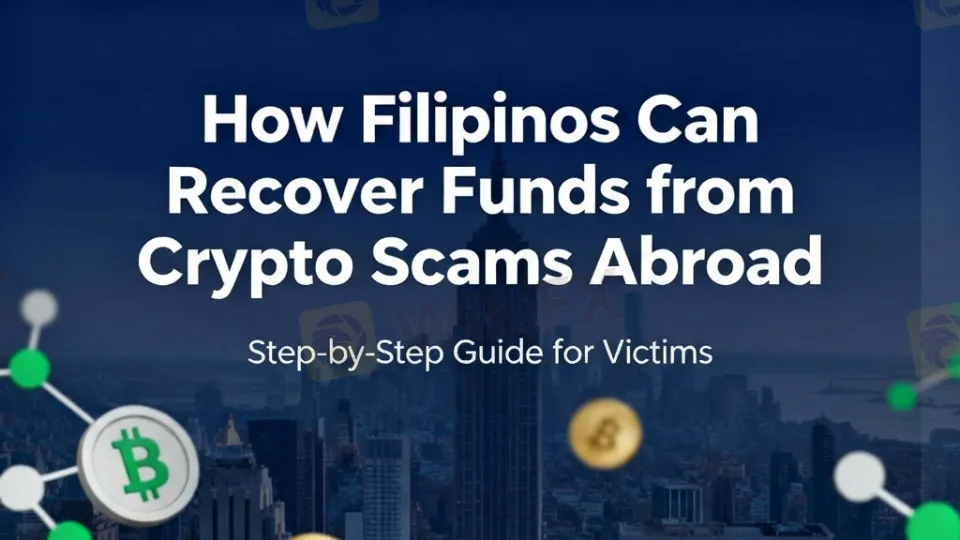
Cryptocurrency investment scams targeting Filipinos often use offshore fronts, fake trading platforms, and high-yield promises to solicit funds in Bitcoin, Ethereum, and tokens before disappearing with investor money, but Philippine law provides remedies through securities, cybercrime, and anti-money laundering frameworks that enable investigation, freezing of assets, and prosecution even with foreign elements. Under the Securities Regulation Code (R.A. 8799), investment contracts involving digital assets fall within the SEC‘s remit when profits are promised from pooled funds or others’ efforts, and platforms offering or promoting investment/trading services to Philippine residents must register with the SEC, with recent rules and advisories naming unregistered offshore exchanges accessible in the country. Cyber-enabled fraud can be prosecuted under the Cybercrime Prevention Act (R.A. 10175), which elevates penalties one degree higher for offenses committed through ICT, while anti-money laundering measures under R.A. 9160 empower ex parte freezing of suspicious accounts by the Court of Appeals upon AMLC petition, supporting rapid containment of illicit transfers.
Scams frequently appear as Ponzi-style high-yield programs, cloned exchange websites, fake wallets that lock withdrawals, social engineering via Telegram, WhatsApp, or Facebook, and pump-and-dump operations on thinly traded tokens, all typically flagged by unsolicited pitches, pressure to invest quickly, missing SEC registration, and demands for untraceable crypto payments. The SEC has repeatedly warned against unregistered crypto platforms soliciting from the public, stressing that unlicensed venues expose investors to total loss of funds, no legal recourse, and heightened risks of fraud and market manipulation, which aligns with the SRC mandate that public offers and intermediation activities require proper registration and oversight. Philippine actions against high-profile platforms illustrate the enforcement posture: authorities have blocked and warned against services operating without the requisite SEC authorization to offer securities or solicit investments locally, reinforcing that residents should verify registration status before engaging.
Immediate steps after discovering a scam should focus on preserving evidence and speed: secure all communications, receipts, wallet addresses, and on-chain transaction hashes, notify any Philippine banks or e-wallets involved to flag or reverse transactions when possible, and trace movements via blockchain explorers to identify transfers into major exchanges for rapid reporting and potential account freezes. Documenting timelines and screenshots with timestamps strengthens sworn statements and complaint-affidavits later filed with agencies, while quick notices to exchanges with compliance teams improve the chances of freezing assets before funds are laundered through mixers or multiple hops. Given jurisdictional complexity, swift escalation to law enforcement and regulators helps activate cross-border cooperation channels that are otherwise slower to mobilize when evidence is incomplete or stale.
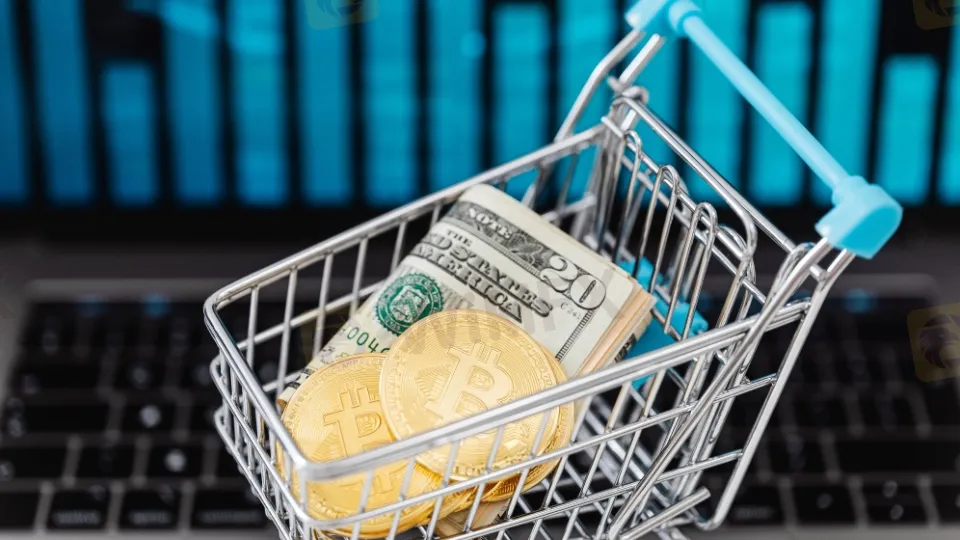
Domestic recovery avenues begin with the SEC‘s Enforcement and Investor Protection Department for investment-related scams, where complaints can trigger cease-and-desist actions, investor alerts, and coordination with foreign counterparts under regulatory MOUs rooted in the SRC’s investor protection mandate. The AMLC can seek ex parte freeze orders from the Court of Appeals for assets linked to unlawful activity, with strict 24-hour action timelines and a maximum freeze period of six months, subject to a summary hearing, providing practical tools to immobilize funds while cases proceed. Civil actions for damages may be filed in the RTC when amounts exceed the small claims threshold, while small claims courts offer expedited processes up to the current jurisdictional cap, and criminal estafa charges under the Revised Penal Code can be paired with R.A. 10175 when offense conduct used ICT, triggering the one-degree-higher penalty rule.
International options include mutual legal assistance to collect evidence and recover assets in partner jurisdictions, where the DOJ channels MLAT requests initiated through NBI or PNP in coordination with foreign authorities to trace and restrain proceeds abroad. The PNP Anti-Cybercrime Group and NBI Cybercrime Division support cross-border referrals and digital forensics, while Interpol cooperation can facilitate notices and arrests against identified actors operating overseas, complementing domestic prosecutions. Philippine courts accept electronic and blockchain-derived evidence under the Rules on Electronic Evidence, and specialized, legitimate forensic firms can assist tracing—though victims should verify service providers to avoid secondary scams masquerading as recovery outfits.
Filing complaints should be systematic and prompt: submit SEC complaints with affidavits and supporting digital evidence for investment-related violations under the SRC; file with BSPs Consumer Assistance Mechanism when licensed institutions or stablecoin-related services are implicated; and report crimes to PNP-ACG or NBI Cybercrime for investigation, subpoenas, and evidence preservation. Prosecutors at the DOJ handle preliminary investigations for estafa and cybercrime charges after law enforcement endorsements, and the DTI remains available for general consumer fraud where appropriate, ensuring coverage across regulatory and penal tracks. Overseas Filipinos can seek help through embassies and OWWA to coordinate filings from abroad so domestic agencies can assert jurisdiction based on effects in the Philippines or the nationality of victims as contemplated by cybercrime jurisdiction rules.
Keep ready the required documentation: government ID and contact details, a clear timeline of events and amounts lost, transaction identifiers and addresses, platform URLs and screenshots, and notarized affidavits to meet formal complaint thresholds across agencies and courts. When funds intersect with regulated touchpoints, AMLC freeze petitions and bank compliance reviews can move quickly, but victims should expect challenges in tracing assets once funds pass through mixers or uncooperative offshore venues, underscoring the value of early reporting. For guidance and litigation strategy, consider legal counsel or free assistance channels, as calculating penalties and choosing venues often requires applying the SRC, RPC, R.A. 10175s one-degree elevation, and AMLA mechanisms to specific fact patterns.
Penalties and remedies are significant: estafa under the RPC may lead to years of imprisonment and restitution, cybercrime provisions elevate penalties when ICT is used, and money laundering violations under AMLA carry imprisonment and facilitate forfeiture and asset preservation orders, collectively designed to deter and punish crypto-enabled frauds. Courts can award moral and exemplary damages alongside restitution in civil and criminal cases as appropriate, and the SRCs enforcement architecture allows administrative sanctions against unregistered securities offers and those soliciting investments without authorization. Jurisdiction for cybercrimes extends to offenses with effects in the Philippines or involving Filipino nationals, enabling prosecution of cross-border schemes when statutory requisites are met.
Prevention remains the strongest defense: confirm any investment or solicitation against SEC registration records and steer clear of platforms the SEC has publicly flagged as unregistered, especially those offering aggressive yields and lacking robust KYC/AML controls. Use only BSP-recognized or properly registered service providers and heed official advisories that call out specific offshore exchanges accessible locally without licenses, as these warnings signal heightened risk and limited recourse for victims. As regulatory frameworks evolve, including SEC rules for crypto-asset service providers and continuing AML updates, staying current with official releases helps investors avoid predatory actors and respond swiftly to incidents.

Read more
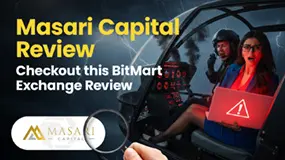
Masari Capital Review — Is MasariCapital.com Legit?
If you're considering trading with Masari Capital, it's crucial to approach with caution. Reports from users and financial watchdogs have raised serious concerns about its legitimacy. The broker's website certificate issued by the Financial Services Authority has been canceled, indicating potential risks. Read the Masari Capital review .
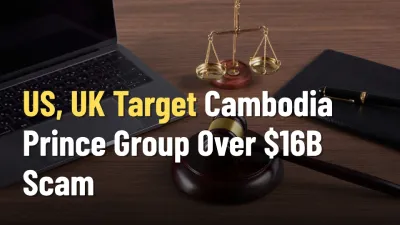
US and UK Sanction Cambodia-Based Prince Group Over $16B Scam
US and UK impose sweeping sanctions on Cambodia's Prince Group transnational criminal organization behind $16B online scams and money laundering.
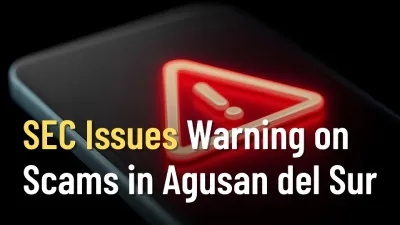
SEC Warns Public Against Bitcoin and Consumer Goods Scams in Agusan del Sur
SEC Butuan warns Filipinos about Christabel Arroyo and De Guzman Consumer Goods Trading scams offering fake bitcoin and goods investments.

Is Exnova Legit? Is the Exnova App Legal in India?
When considering a broker, two of the most common questions are: Is Exnova legitimate? and Is the Exnova app legal in India? Exnova is an offshore trading platform. Read this Exnova review to learn how to log in, learn about the Exnova app, trading instruments, and more.
WikiFX Broker
Latest News
UAE Launches Sixth 'Caution' Campaign to Combat Forex and Online Investment Fraud
US and UK Sanction Cambodia-Based Prince Group Over $16B Scam
OctaFX Forex Brokerage $318 million Fraud Case in India: Authorities Arrest Pavel Prozorov!
Top Tips to Avoid Forex Margin Calls and Protect Your Capital
FCA Daily Alert: Checkout FCA Consumer Warning List
How Filipinos Can Recover Funds from Crypto Scams Abroad
OctaFX’s Controlling Shareholder Arrested | Is This Broker Hiding a Massive Scam?
Kato Prime Under Fire: What Traders Should Know Before It’s Too Late
Warning: FinPros Finds New Excuses to Block Withdrawals
Is Exnova Legit? Is the Exnova App Legal in India?
Rate Calc

